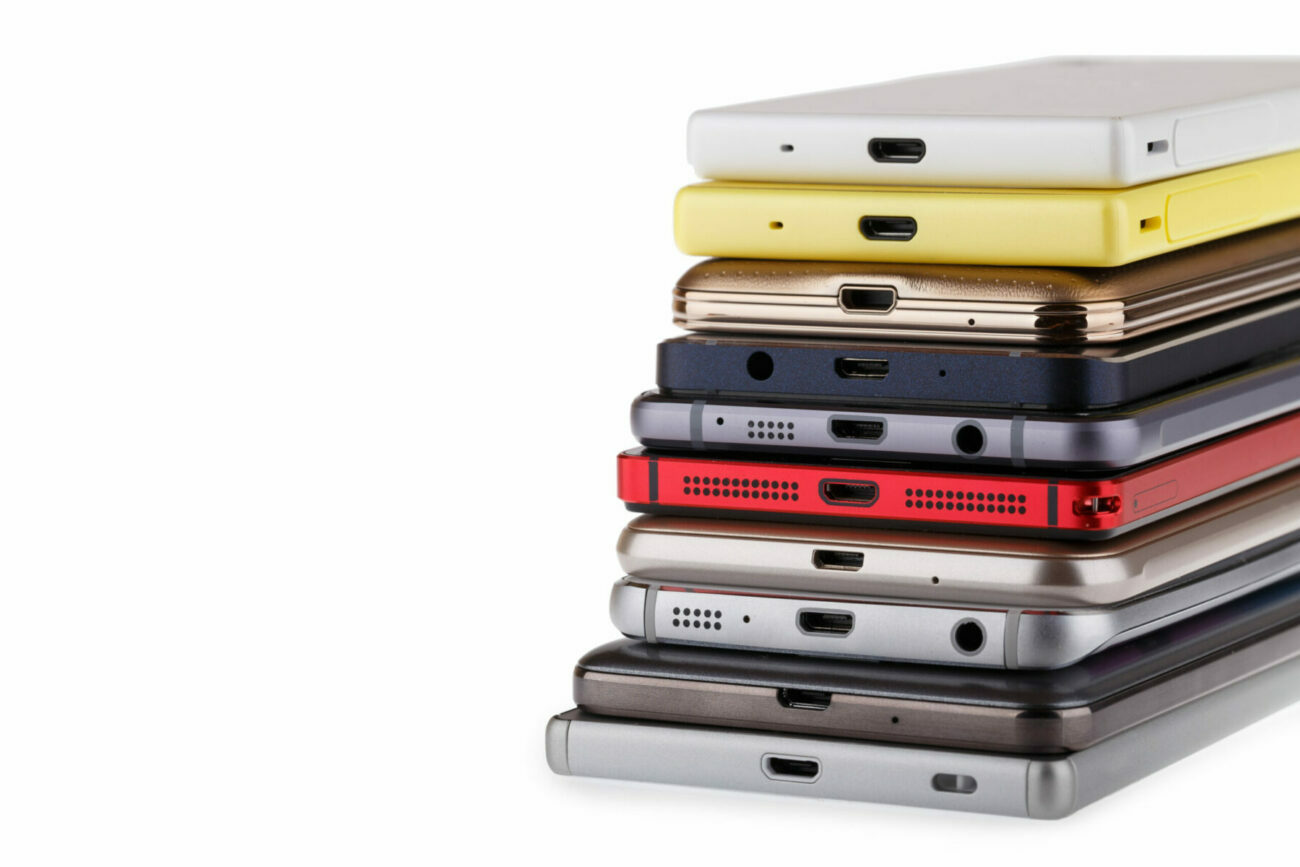Choosing the right mobile devices or phones for your company can be a difficult decision. There are so many options, but what should you choose?
Your business will have specific requirements that any new mobile phone or device needs to meet. For instance, if your company relies heavily on mobile data or uses apps that require 24/7 internet access, you will need to invest in smartphones with 4G and 5G capabilities and high-capacity battery life. If your employees work remotely and need to remain connected to the office to access email, data files, video conferencing and more, then investing in laptops is probably the best solution.
There are clearly numerous aspects to take into account when choosing the right device or phone. As a starting point, we always ask customers the following questions to get an idea of what will work best for them.
- How many company users require a mobile device and or phone?
- How and do employees use their phones?
- Where do employees use their phones/devices?
- What do you use your mobile phones/devices for?
- Do staff make regular international calls?
- What mobile applications does your organisation use?
The answers will help you secure the right solution for your business and employees in terms of:
1. Functionality
First and foremost, you need to make sure that the device or smartphone you select will deliver all the functionality you need. The best phone for your business is the one that enables you to carry out the digital tasks that your role requires. The apps and features you want to use can influence whether you choose an IoS or Android device. For example telemetry or custom built business applications.
You also want to make sure that you buy a phone or laptop that will gives employees the ability to use and integrate with new technology, so you can make the most of the latest functions and features out there. From security upgrades and device management solutions to using the most recent version of Windows or Teams.
Think about how you want to use your mobile devices and what features you want to run your business, such as super-fast internet, 5G functionality or high-quality in-built cameras for video meetings. There are a wide range of features that will make you and your employees more connected as well as more efficient.
2. Portability
The days of cumbersome devices and outsized phones are long gone, but portability can still be a big issue for some businesses. If your staff regularly travel for work or need to use their devices on the go, it’s essential that the smartphones, tablets or laptops you choose are highly portable, lightweight and resilient. It is also important to make sure that associated chargers and accessories are readily available and not too weighty.
The nature of your company and the sector it operates in will have an impact on what model of mobile phone or laptop that’s best for your business. For example, the best work phones for a construction company might be a specialist, ruggedized model that’s been specifically built to withstand the rigours of being used on a building site. In contrast, the best device for field salespeople may not be something so robust, but offer a wider variety of sales pipeline applications.
When you choose a device that offers maximum functionality, it will help employees avoid having to use a range of different devices to perform essential tasks. They won’t have to carry a separate phone, tablet, or laptop for their work. As well as being more practical physically, it is also beneficial in terms of securing network access device management.
3. Screen Size
Screen size is a big consideration when you’re looking at the best device for your business. Spend time thinking about how you and your employees will be using it. A smartphone might be great for on-the-go connectivity and inputting small amounts of information, but it may not be the ideal solution if employees are going to be using it as their main device for data analysis or creating presentations 8-9 hours a day. In this situation, a tablet or laptop, with larger screen size, would be more appropriate.
Fortunately, there are plenty of options available, from standard smartphones and plus-sized smartphones to 10” tablets and 15” or 17” laptops.
4. Reviews and Ratings
Do your due diligence before making any final choices for your device or devices. Be sure to take a look at recent reviews and ratings. Providing you check independent sites, you’ll get a good idea of whether a particular device really lives up to the hype and whether it will be an asset to your employees working lives.
Whether you’re ready to purchase the latest Samsung ‘best phone’ for business, drawn to Apple devices for your employees or simply want to discover the best smartphone for business professionals, third-party reviews and ratings give you an insight into the ‘real life’ usability of devices.
5. Tariffs and Charges
Cost is a significant factor when selecting smartphones, tablets and laptops. Be aware of the best business mobile phone deals. By taking the time to compare mobile phone deals, you can ensure that you’re getting the most cost-effective tech solution. Alternatively, work with your mobile solutions provider to find the best deal for hardware and tariffs on your behalf.
When you’re choosing a business tariff, be realistic about how much voice and data you’re likely to use or if your team need to make international calls. Monitoring existing usage can give you an accurate insight into how much data you’ll need going forward. However, remember to note that data usage might increase in the future. If your team have 5G-enabled devices, the added functionality this offers, may lead to more data being used.
By selecting a tariff or data plan that’s flexible or can be modified as your business evolves, you will avoid costly excess charges as usage changes. There is value for businesses to work with a trusted communications solutions provider, to not only find them the right devices, but to review and manage their ongoing voice and data tariff costs.
Finding the Right Mobile Solutions
When you’re looking at your mobile solution, it isn’t simply about the device that you need to select. Voice and data tariffs alongside monitoring and security should be a key part of any decision making.
We recommend that you talk to a mobile solutions provider to discuss what your business needs are. They should then build a tailored plan to support your business goals, security and helpdesk requirements. This will not only make sure you benefit from competitive tariffs and transparent billing, but achieve the best prices for hardware, whether it’s a 5G smartphone or a new to market laptop.






